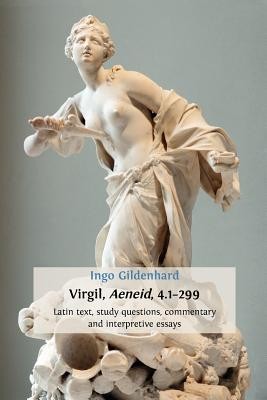
- We will send in 10–14 business days.
- Author: Ingo Gildenhard
- Publisher: Open Book Publishers
- Year: 2012
- Pages: 320
- ISBN-10: 1909254150
- ISBN-13: 9781909254152
- Format: 15.6 x 23.4 x 1.7 cm, minkšti viršeliai
- Language: English
- SAVE -10% with code: EXTRA
Reviews
Description
Love and tragedy dominate book four of Virgil's most powerful work, building on the violent emotions invoked by the storms, battles, warring gods, and monster-plagued wanderings of the epic's opening. Destined to be the founder of Roman culture, Aeneas, nudged by the gods, decides to leave his beloved Dido, causing her suicide in pursuit of his historical destiny. A dark plot, in which erotic passion culminates in sex, and sex leads to tragedy and death in the human realm, unfolds within the larger horizon of a supernatural sphere, dominated by power-conscious divinities. Dido is Aeneas' most significant other, and in their encounter Virgil explores timeless themes of love and loyalty, fate and fortune, the justice of the gods, imperial ambition and its victims, and ethnic differences. This course book offers a portion of the original Latin text, study questions, a commentary, and interpretative essays. Designed to stretch and stimulate readers, Ingo Gildenhard's incisive commentary will be of particular interest to students of Latin at both A2 and undergraduate level. It extends beyond detailed linguistic analysis to encourage critical engagement with Virgil's poetry and discussion of the most recent scholarly thought.
EXTRA 10 % discount with code: EXTRA
The promotion ends in 21d.10:55:34
The discount code is valid when purchasing from 10 €. Discounts do not stack.
- Author: Ingo Gildenhard
- Publisher: Open Book Publishers
- Year: 2012
- Pages: 320
- ISBN-10: 1909254150
- ISBN-13: 9781909254152
- Format: 15.6 x 23.4 x 1.7 cm, minkšti viršeliai
- Language: English English
Love and tragedy dominate book four of Virgil's most powerful work, building on the violent emotions invoked by the storms, battles, warring gods, and monster-plagued wanderings of the epic's opening. Destined to be the founder of Roman culture, Aeneas, nudged by the gods, decides to leave his beloved Dido, causing her suicide in pursuit of his historical destiny. A dark plot, in which erotic passion culminates in sex, and sex leads to tragedy and death in the human realm, unfolds within the larger horizon of a supernatural sphere, dominated by power-conscious divinities. Dido is Aeneas' most significant other, and in their encounter Virgil explores timeless themes of love and loyalty, fate and fortune, the justice of the gods, imperial ambition and its victims, and ethnic differences. This course book offers a portion of the original Latin text, study questions, a commentary, and interpretative essays. Designed to stretch and stimulate readers, Ingo Gildenhard's incisive commentary will be of particular interest to students of Latin at both A2 and undergraduate level. It extends beyond detailed linguistic analysis to encourage critical engagement with Virgil's poetry and discussion of the most recent scholarly thought.


Reviews